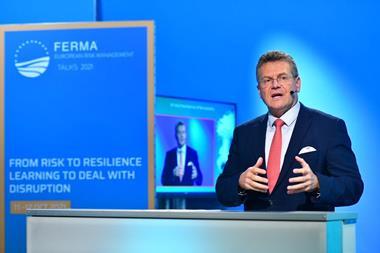More proportionality is required for captives, which are not of “systemic relevance”
The Federation of German Industries, BDI, and German insurance buyers’ association GVNW have welcomed the efforts of the European Commission to further develop Solvency II.
While they praised efforts to make the supervisory regulations more proportionate, the associations argue that further proportionality is needed for captive insurers.
”The objective of making the regulatory framework of Solvency II more appropriate for insurers with low-risk profiles is particularly important for the captive industry,” they explain in a joint position paper. “Allowing exemptions from regulatory reporting, governance requirements, own-risk management and disclosure requirements is an important step in the right direction.
”However, we believe more needs to be done here. Captives are insurers or reinsurers that are owned by an industrial, commercial or financial company which is not itself an insurer or reinsurer and that mainly insure or reinsure the risks of their owners.
“Captives have become more important in recent years because of their ability to address non-traditional risk factors (ie climate and sustainability issues) and to optimise the financing of their insurable risks.
”Large German corporations thus organise significant parts of their risk transfer and risk financing via their own captive insurance companies in order to manage capacity shortages of the insurance market, reduce volatility of insurance premiums and support a more dedicated risk management strategy.
”From a prudential point of view, captives are different to classical insurers or reinsurers.”
Provided the original policyholder is the parent company, captives are not of systemic relevance, argue BDI and GVNW.
As they are only doing business with other corporates, consumer protection rules do not apply. They follow a conservative investment strategy, do not have complex and therefore risky business models and the insured or reinsured risks pertain only to the parent company or its subsidiaries.
“For most captives their worstcase claim scenario can be defined in a deterministic manner. Hence, the application of the standard formula is not appropriate, and captives should be provided with a more suitable regulatory environment.”
The associations suggest replacing the amount of technical provisions and the amount of annual gross written premium with the number of contracts written by an insurance and reinsurance undertaking.
And there is a case for insurance and reinsurance undertakings writing up to 20 insurance or reinsurance contracts by way of direct insurance or active reinsurance to be exempted from Solvency II altogether.




















No comments yet